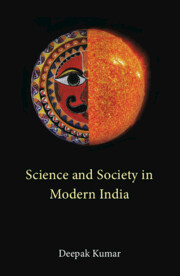2 - The Age of Exploration and Consolidation
Published online by Cambridge University Press: 23 May 2023
Summary
Our spirit rules the world. Our wisdom enters into the composition of the every-day life of half the globe. Our physical as well as intellectual presence is manifest in every climate under the sun. Our sailing ships and steam-vessels cover the seas and rivers. Wherever we conquer, we civilize and refine. Our arms, our arts, our literature are illustrious among the nations. We are a rich, a powerful, an intelligent and a religious people. No place is too remote for our enterprises or our curiosity. We have an insatiable energy, which is of the utmost value to the work. We have spread ourselves over all regions. We have peopled North America, civilized India, taken possession of Australia and scattered the Anglo-Saxon name and fame, language and literature, religion and laws, ideas and habits, over the fairest portions of the globe.
—The Illustrated London NewsThis was the proud and justified boast of a nation which had helped produce the scientific and industrial revolutions of the 17th and 18th centuries, and had almost simultaneously embarked upon colonizing large parts of the world. Colonial expansion required knowledge of the terrain, its people, its resources, and so on. No domination could be established without this knowledge. And this knowledge could not be obtained without scientific explorations and surveys. Next to the guns and ships, these were the most potent tools in the hands of a colonizing power. Through them it could afford to know unknown people, chart untrodden paths, and estimate local resources. So, surveyors marched by the side of conquering armies. Topographical surveys had military origins and this relationship was maintained throughout (India got its first civilian Surveyor General only in 1991!). Similarly, meteorological observations and data were important for a seafaring colonizer and an agro-based colony. Geological surveys came late. They started as a part of topographical explorations but as British rule stabilized, they acquired their own identity and played a major role in the economic exploitation of the country. But botanical explorations had started much earlier, in the 18th century itself, in some cases, even before. After all, the colonies were called plantations; they traded in plant products, and had a lot to do with botanical knowledge.
- Type
- Chapter
- Information
- Science and Society in Modern India , pp. 24 - 49Publisher: Cambridge University PressPrint publication year: 2023

